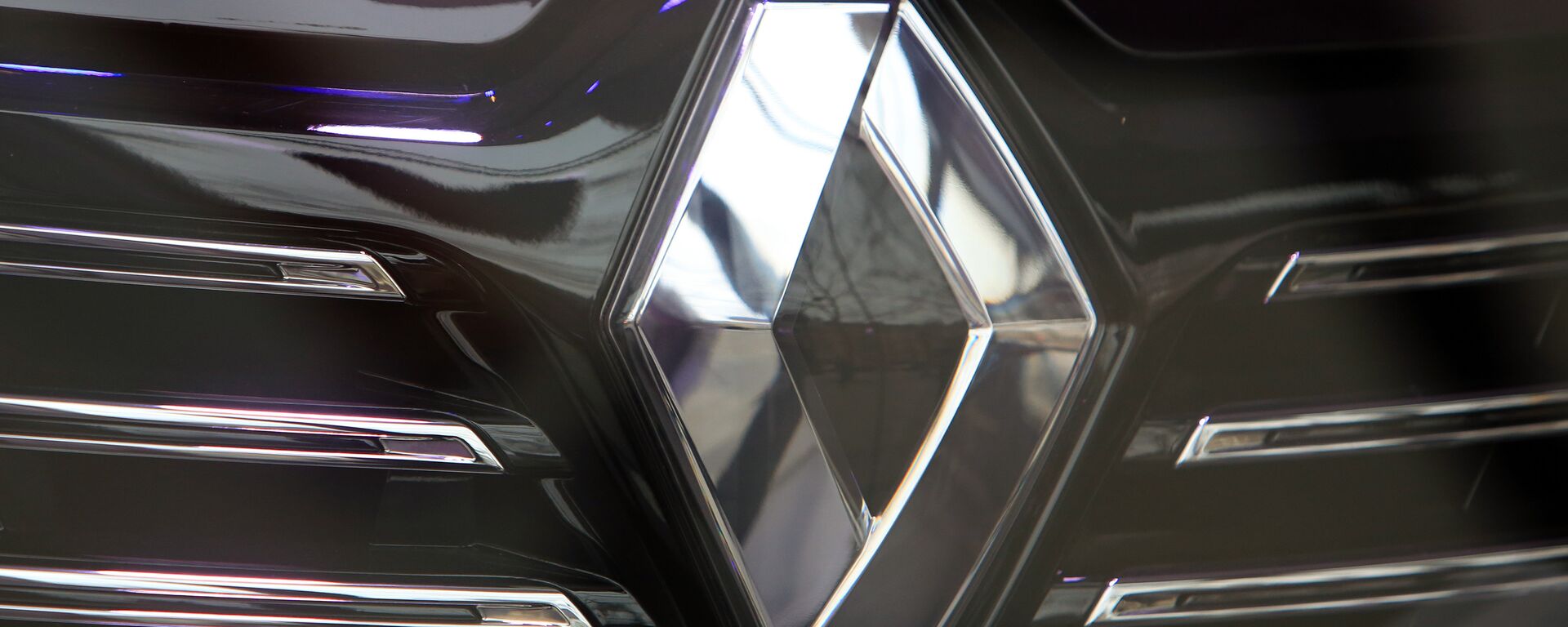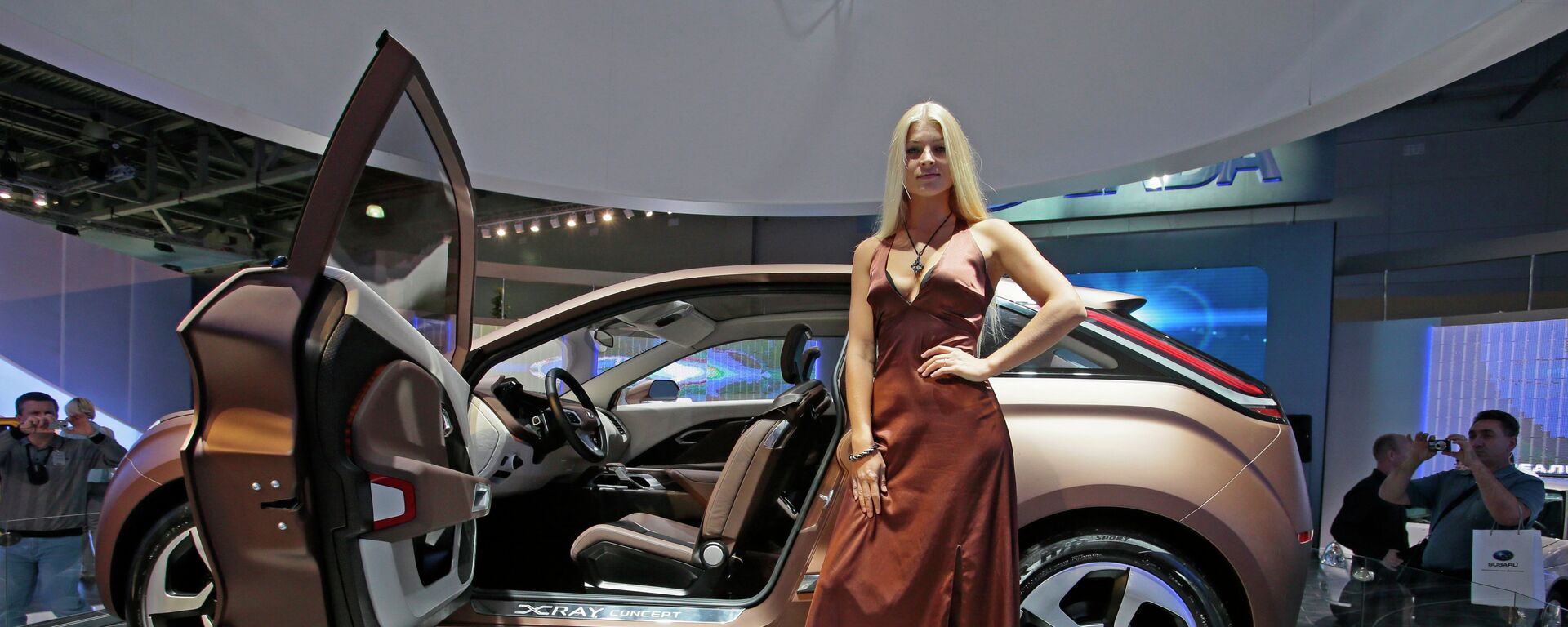https://sputnikglobe.com/20230222/pivot-to-china-how-russias-car-industry-is-adapting-to-sanctions-1107702956.html
Pivot to China: How Russia's Car Industry is Adapting to Sanctions
Pivot to China: How Russia's Car Industry is Adapting to Sanctions
Sputnik International
As Chinese car manufacturers are storming the Russian market following the recent sanctions-motivated exodus of Western competitors, Russian auto parts producers are occupying new niches and forming alternative supply chains.
2023-02-22T14:37+0000
2023-02-22T14:37+0000
2023-02-22T14:37+0000
russia
china
car industry
sanctions
lada
https://cdn1.img.sputnikglobe.com/img/07e7/02/16/1107709544_0:0:1280:720_1920x0_80_0_0_d17611cd68c329c1913f72b9f24bb7ca.jpg
For the past 15 years, Moscow’s Alpha Automotive Technologies (AAT) has been making car body components for Russian-assembled vehicles of the French-Japanese Renault-Nissan-Mitsubishi alliance. Now it has switched to similar orders from Chinese companies.A multi-story commercial building in the south of the Russian capital has recently become the new home of AAT. It’s much more spacious than the old Moscow facility, where it was housed until the fall of 2022. It gives the car parts manufacturer more room for expansion. The company’s top managers are excited.Haval has been working in Russia since 2014. It has built a plant in the Tula region, about 200km from Moscow, which currently produces SUVs and pickup trucks. Unlike the Westerners, the Chinese chose to stay in Russia in 2022 following the beginning of Moscow’s special military operation in Ukraine, welcoming the input from local parts makers, such as AAT.AAT’s own equipment is mostly made in countries that imposed economic sanctions against Russia last year – Sweden, Switzerland, the US, and others. But the company’s workers are optimistic about servicing the heavy machines and electronics locally.“The robots are being serviced according to pre-planned schedule,” shift supervisor Alexander Yemelin says. “We also have enough spare parts in storage, so the equipment will remain functional for a very long time.”Partnership with Haval is not the only lucrative opportunity for AAT that has arisen with the exodus of Western and the arrival of Eastern car makers. The company’s management has another big project in its crosshairs. As the Moscow government is planning to jump-start the Soviet-era Moskvich auto brand in co-operation with another Chinese automotive giant, Anhui Jianghuai Automobile Group (JAC), Alpha Automotive Technologies wants to produce components for the newly-made gasoline-powered and electric Moskvich SUVs:Moskvich alone plans to assemble locally about 50,000 SUVs annually, with 10,000 being electric cars, Sakhanov told Sputnik. When it comes to the bigger picture, AAT and domestic manufacturers are planning to become part of a long-term government strategy to develop Russia’s domestic car-making industry, with 2.7 trillion rubles ($36.4 billion) in state investments scheduled to be made by 2035.In 2022, foreign car brands such as Mercedes-Benz, Volkswagen, Mazda, Toyota, Renault, as well as some others suspended sales and manufacturing operations in Russia, with many of them permanently closing assembly lines and dealerships countrywide.This mass exodus created new business opportunities for domestic and Chinese car brands. According to data from the Autostat analytical agency, Chinese automakers increased their share of Russian car sales from 9.6% in January 2022 to 38.1% in January 2023 – a fourfold increase. Some Chinese brands also moved to establish local production of their automobile models in Russia.Domestic automakers also experienced a surge in sales after Western and Japanese companies left the Russian market. For example, Russia’s Lada brand saw its share of the domestic sales jump from 18.9% in January 2022 to 39% a year later.
https://sputnikglobe.com/20220729/renault-estimates-losses-from-leaving-russian-market-at-23-billion-1097923119.html
https://sputnikglobe.com/20220709/indian-business-sees-potential-for-successful-development-of-russian-car-industry-1097132056.html
china
Sputnik International
feedback@sputniknews.com
+74956456601
MIA „Rosiya Segodnya“
2023
Denis Bolotsky
https://cdn1.img.sputnikglobe.com/img/07e5/06/0b/1083128270_0:0:961:960_100x100_80_0_0_8cd81dafcbaac1c176c25141f8af1d2a.jpg
Denis Bolotsky
https://cdn1.img.sputnikglobe.com/img/07e5/06/0b/1083128270_0:0:961:960_100x100_80_0_0_8cd81dafcbaac1c176c25141f8af1d2a.jpg
News
en_EN
Sputnik International
feedback@sputniknews.com
+74956456601
MIA „Rosiya Segodnya“
Pivot to China: How Russia's Car Industry is Adapting to Sanctions
Sputnik International
Pivot to China: How Russia's Car Industry is Adapting to Sanctions
2023-02-22T14:37+0000
true
PT3M33S
Sputnik International
feedback@sputniknews.com
+74956456601
MIA „Rosiya Segodnya“
Denis Bolotsky
https://cdn1.img.sputnikglobe.com/img/07e5/06/0b/1083128270_0:0:961:960_100x100_80_0_0_8cd81dafcbaac1c176c25141f8af1d2a.jpg
pivot to china, how russia's car industry is adapting to sanctions, russia's car industry, russia's car industry is adapting to sanctions, exodus of western companies from russia
pivot to china, how russia's car industry is adapting to sanctions, russia's car industry, russia's car industry is adapting to sanctions, exodus of western companies from russia
Pivot to China: How Russia's Car Industry is Adapting to Sanctions
As Chinese car manufacturers are storming the Russian market following the recent sanctions-motivated exodus of Western competitors, Russian auto parts producers are occupying new niches and forming alternative supply chains.
For the past 15 years, Moscow’s Alpha Automotive Technologies (AAT) has been making car body components for Russian-assembled vehicles of the French-Japanese
Renault-Nissan-Mitsubishi alliance. Now it has switched to similar orders from Chinese companies.
A multi-story commercial building in the south of the Russian capital has recently become the new home of AAT. It’s much more spacious than the old Moscow facility, where it was housed until the fall of 2022. It gives the car parts manufacturer more room for expansion. The company’s top managers are excited.
“We are starting to feel that the market becomes alive and on 1 February we managed to sign the first big contract with the Russian office of the Chinese ‘Great Wall’ Corporation, it’s called Haval Motor Manufacturing,” AAT’s CEO Zorigto Sakhanov says. “We struck the first large deal, and, I think, we are now compensating for our losses in the niche that was previously occupied by Renault Russia”
Haval has been working in Russia since 2014. It has built a plant in the Tula region, about 200km from Moscow, which currently produces SUVs and pickup trucks. Unlike the Westerners, the Chinese chose to stay in Russia in 2022 following the beginning of Moscow’s special military operation in Ukraine, welcoming the input from local parts makers, such as AAT.
AAT’s own equipment is mostly made in countries that imposed economic sanctions against Russia last year – Sweden, Switzerland, the US, and others. But the company’s workers are optimistic about servicing the heavy machines and electronics locally.
“The robots are being serviced according to pre-planned schedule,” shift supervisor Alexander Yemelin says. “We also have enough spare parts in storage, so the equipment will remain functional for a very long time.”
Partnership with Haval is not the only lucrative opportunity for AAT that has arisen with the exodus of Western and the arrival of Eastern car makers. The company’s management has another big project in its crosshairs. As the Moscow government is planning to jump-start the Soviet-era Moskvich auto brand in co-operation with another Chinese automotive giant, Anhui Jianghuai Automobile Group (JAC), Alpha Automotive Technologies wants to produce components for the newly-made gasoline-powered and electric Moskvich SUVs:
“We are already having preliminary talks and we have requested nominations in 'large and medium-size car body parts' categories for this brand. We hope that we will take part in this big project,” Zorigto Sakhanov says.
Moskvich alone plans to assemble locally about 50,000 SUVs annually, with 10,000 being electric cars, Sakhanov told Sputnik. When it comes to the bigger picture, AAT and domestic manufacturers are planning to become part of a long-term government strategy to develop Russia’s domestic car-making industry, with 2.7 trillion rubles ($36.4 billion) in state investments scheduled
to be made by 2035.
In 2022, foreign car brands such as Mercedes-Benz, Volkswagen, Mazda, Toyota, Renault, as well as some others suspended sales and manufacturing operations in Russia, with many of them permanently closing assembly lines and dealerships countrywide.
This mass exodus created new business opportunities for domestic and Chinese car brands. According to data from the Autostat analytical agency, Chinese automakers increased their share of Russian car sales from 9.6% in January 2022 to 38.1% in January 2023 – a fourfold increase. Some Chinese brands also moved to establish local production of their
automobile models in Russia.
Domestic automakers also experienced a surge in sales after Western and Japanese companies left the Russian market. For example, Russia’s Lada brand saw its share of the domestic sales jump from 18.9% in January 2022 to 39% a year later.







